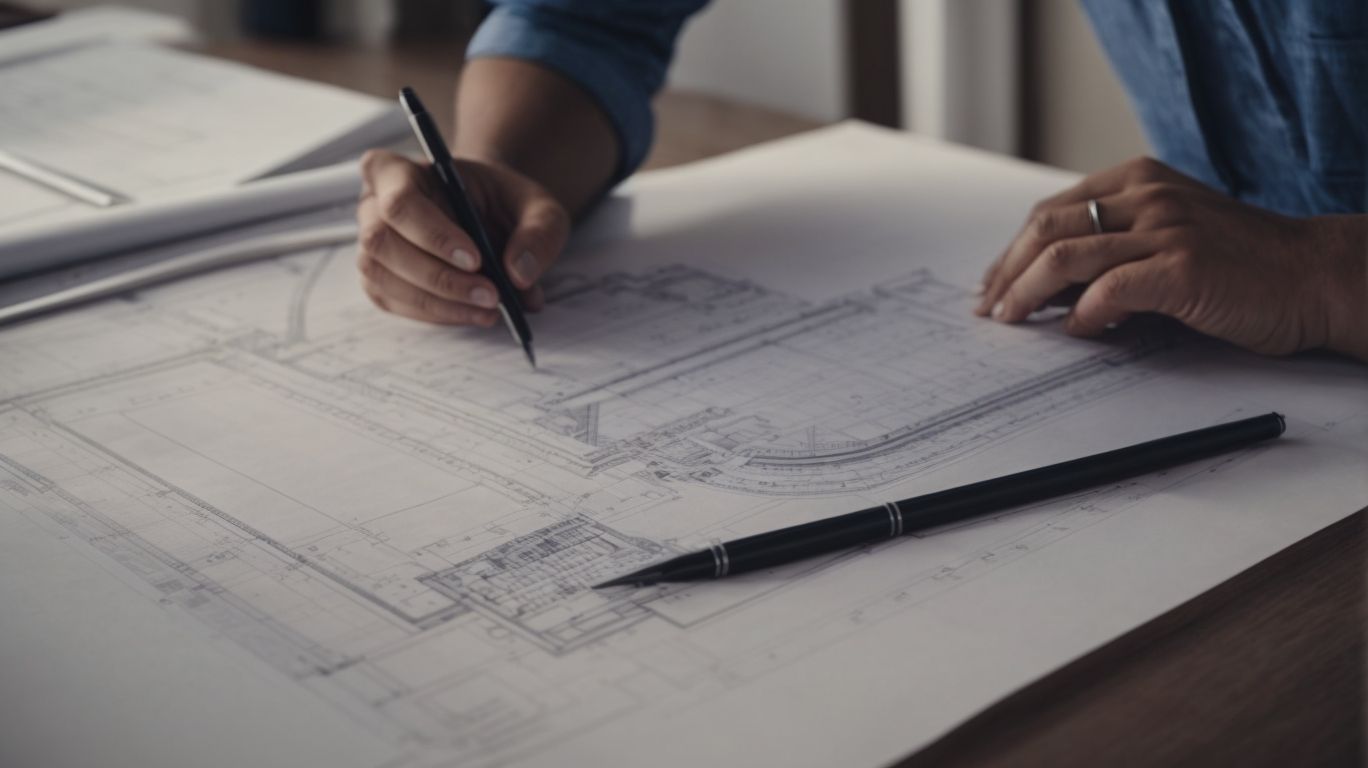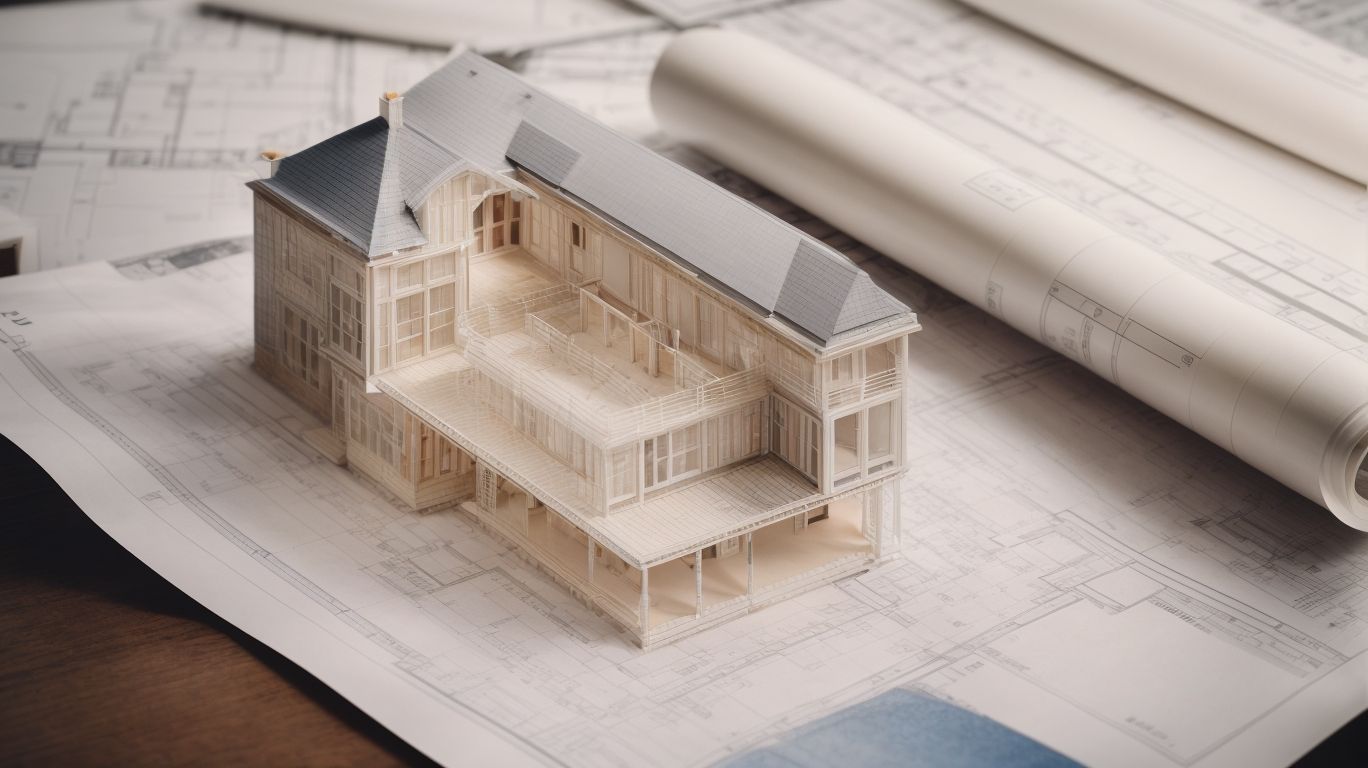
How Residential Structural Engineering Can Enhance Your Home
Are you looking to make improvements to your home that go beyond just aesthetics? Residential structural engineering could be the key to transforming your living space into a structurally sound and functional environment.
In this article, we will explore the importance of residential structural engineering for your home, the services provided by residential structural engineers, and how this expertise can enhance your living space.
Whether you’re considering a renovation, expansion, or simply want to ensure the safety and value of your home, understanding the role of residential structural engineering is crucial. So, let’s dive in and discover how this specialized field can benefit your home!
What Is Residential Structural Engineering?
Residential structural engineering involves the analysis, design, and construction supervision of load-bearing structures within homes, adhering to building codes and standards to ensure safety, stability, and structural integrity.
Residential structural engineers play a critical role in the construction process by ensuring homes are built to withstand various loads and environmental factors. Through thorough structural analysis, they identify weaknesses and develop design solutions to enhance strength and stability. Their expertise also ensures compliance with building regulations, resulting in aesthetically pleasing and safe homes for inhabitants.
In summary, residential structural engineering is a crucial component in creating resilient and secure homes.
Why Is Residential Structural Engineering Important for Your Home?
Residential structural engineering is crucial for your home as it ensures the safety, stability, and structural integrity of the property, enhancing its overall design and construction while adhering to building regulations and standards.
This specialized engineering discipline involves the analysis, design, and construction of residential buildings, ensuring that they can withstand various loads and environmental conditions. From assessing foundation stability to determining suitable materials and construction methods, structural engineers play a vital role in safeguarding homes against potential risks.
By integrating the principles of building regulations and safety standards, they contribute to the longevity and resilience of residential structures, ultimately providing peace of mind to homeowners.
Ensures Structural Integrity
Residential structural engineering ensures the structural integrity of homes, providing the necessary support and stability to withstand various external forces and ensuring the safety of occupants.
This field of engineering plays a crucial role in analyzing, designing, and constructing residential structures to meet specific safety standards and local building codes. By considering factors such as soil conditions, seismic activity, and environmental loads, structural engineers ensure that homes can withstand natural disasters, heavy winds, and other potential hazards. Their expertise also extends to renovations and strengthening existing structures to enhance overall stability and safety for homeowners.
Improves Safety
Residential structural engineering plays a pivotal role in improving the safety of homes by conducting thorough inspections, identifying structural defects, and overseeing necessary repairs and reinforcements to mitigate potential hazards.
This approach ensures that buildings are constructed and maintained in accordance with safety standards, minimizing the risk of structural failures. Through building inspections, engineers are able to detect issues early, allowing for prompt and effective repairs.
Structural engineering also encompasses the implementation of preventive measures, such as structural reinforcements, to enhance the overall safety and resilience of residential structures, ultimately protecting the occupants and their investments.
Increases Property Value
Residential structural engineering plays a crucial role in increasing property value. By ensuring structural stability, facilitating renovations, and incorporating structural upgrades, it enhances the overall appeal and longevity of a home.
This is particularly important for older homes or those in need of significant renovation. With the expertise of structural engineering, these transformations can be securely supported.
The integration of structural upgrades, such as reinforcing foundations or adding load-bearing walls, not only ensures safety but also allows for the possibility of expanding the living space. This can significantly enhance the property’s value and contribute to its overall desirability and market value.
What Are the Services Provided by Residential Structural Engineers?
Residential structural engineers offer a range of services, including comprehensive structural inspections, specialized foundation design and repair, and the development of precise construction drawings to guide building modifications and renovations.
Residential building inspectors are responsible for conducting comprehensive structural inspections to evaluate the safety and integrity of properties. They carefully identify any potential issues or weaknesses that may compromise the building’s stability.
In addition, these professionals specialize in designing and implementing customized foundation solutions that meet the specific needs of each property. This ensures long-term stability and durability for the building. They also excel in creating detailed construction drawings that serve as valuable blueprints for seamless project execution, including all necessary specifications and details.
Structural Inspections
Structural inspections conducted by residential structural engineers involve meticulous analysis to identify potential defects, assess structural integrity, and provide valuable insights for necessary repairs or modifications.
This process typically begins with a thorough visual examination of the property, followed by in-depth assessment using advanced structural analysis techniques.
The engineers meticulously inspect various elements such as foundation, walls, beams, and columns to detect any signs of deterioration, deformation, or other structural deficiencies. Through this comprehensive approach, they can pinpoint potential defects and assess the overall safety and stability of the structure, which is crucial for ensuring the long-term integrity of residential buildings.
Foundation Design and Repair
Residential structural engineers specialize in designing and repairing foundations, ensuring proper load-bearing capacity, and implementing seismic retrofit measures to enhance the foundation’s resilience to external forces.
These professionals possess advanced knowledge of structural analysis and materials engineering, allowing them to assess and reinforce the stability of a foundation against dynamic loads and ground movements.
Utilizing cutting-edge technologies and industry best practices, residential structural engineers conduct thorough inspections and identify potential weaknesses. They then develop tailored solutions for foundation repair and strengthening.
In addition, their expertise in seismic retrofitting ensures that buildings can withstand earthquakes and minimize structural damage. This makes them crucial in safeguarding the longevity and safety of residential structures.
Framing Design and Analysis
Residential structural engineers are proficient in framing design and analysis, collaborating on the acquisition of construction permits and conducting precise structural calculations to ensure optimal structural performance.
Their expertise enables them to work closely with architects, builders, and local authorities to ensure that the proposed design complies with building codes and regulations. This ultimately aims to guarantee the safety and stability of residential structures.
Through diligent calculations, they assess load-bearing capacities, lateral stability, and other critical factors, contributing to the creation of robust and compliant building structures. They also play a crucial role in obtaining construction permits by preparing detailed documentation that highlights adherence to relevant standards and codes, facilitating smooth approval processes.
Roof Design and Repair
Residential structural engineers oversee roof design and repair, selecting appropriate building materials, and integrating architectural plans to ensure the structural integrity and longevity of the roofing system.
Roofing experts play a crucial role in assessing the requirements of a building’s structure and environmental factors. They use this information to recommend suitable materials, such as asphalt shingles, metal, clay, or concrete tiles.
Their expertise is essential in ensuring that architectural plans align with the building’s structural capacity. This includes considering factors like snow loads, wind resistance, and seismic considerations. By collaborating with architects and builders, they contribute to creating durable and aesthetically pleasing roofing designs while adhering to building codes and safety standards.
Retaining Wall Design
Residential structural engineers specialize in retaining wall design, incorporating advanced construction techniques and structural reinforcement to create durable and resilient retaining structures on residential properties.
They possess expertise in evaluating soil conditions, designing drainage systems, and selecting materials for retaining walls. They are also knowledgeable in implementing innovative construction methods, such as segmental retaining walls or reinforced concrete walls, to ensure structural integrity and longevity.
Environmental considerations and potential external forces are factored in, and reinforcement measures like geogrids or steel reinforcements are skillfully integrated to fortify retaining walls against lateral earth pressures and settlement issues.
How Can Residential Structural Engineering Enhance Your Home?
Residential structural engineering can enhance your home by offering customization, maximizing space and functionality, incorporating sustainable design elements, and improving aesthetics and curb appeal through structural upgrades and modifications.
Transform your living space into a unique reflection of your personal style and needs with the help of enhancements. These can include custom-built features, such as a tailored layout or a specialized room design.
Incorporating sustainable materials and energy-efficient designs not only reduces environmental impact, but also lowers long-term maintenance costs. This contributes to a more sustainable and eco-friendly living environment.
By combining these elements with structural upgrades, residential structural engineering has the ability to elevate the overall livability and value of your home.
Customization and Personalization
Residential structural engineering facilitates customization and personalization of homes, integrating architectural design elements and enabling tailored home improvement projects that reflect the homeowner’s unique preferences.
This collaborative approach between the homeowner and the structural engineer allows for the incorporation of specific design features, such as open floor plans, vaulted ceilings, or custom-built elements.
By ensuring that the structural integrity is maintained, the engineering process seamlessly blends the aesthetic vision with safety and functionality. This fusion of creativity and technical expertise empowers homeowners to transform their living spaces into personalized havens that align with their individual style and needs.
Maximizing Space and Functionality
Residential structural engineering contributes to maximizing space and functionality within homes, leveraging innovative construction techniques and building support solutions to enhance the overall usability of residential spaces.
Residential structural engineering plays a pivotal role in ensuring that buildings are structurally sound. This allows for the efficient utilization of available space.
By integrating advanced technology and design principles, engineers can create opportunities for versatile layouts and integrated storage solutions in residential design. Strategic placement of load-bearing elements and reinforcement of key structural components optimize interior spaces, increasing flexibility and adaptability. This attention to detail not only enhances the aesthetic appeal of homes but also improves their structural integrity and longevity.
Incorporating Sustainable and Eco-Friendly Design
Residential structural engineering integrates sustainable and eco-friendly design elements, utilizing environmentally conscious construction materials and adhering to established building standards to create homes with a reduced environmental footprint.
These design elements prioritize energy efficiency, use of recycled and renewable materials, and minimized waste generation during construction.
Building techniques such as passive solar design, natural ventilation, and efficient insulation are incorporated to reduce energy consumption.
The use of sustainably sourced timber, recycled steel, and low-impact concrete further contribute to the eco-friendly nature of the structures.
Adherence to green building certifications, such as LEED and BREEAM, ensures that the homes meet rigorous sustainability standards.
Improving Aesthetics and Curb Appeal
Residential structural engineering plays a crucial role in improving the aesthetics and curb appeal of residential properties. Through strategic building renovation and structural repair, it enhances the visual appeal and market value of homes.
This professional expertise ensures that the structural integrity of buildings is maintained while seamlessly integrating design elements to elevate the overall aesthetic.
By incorporating modern architectural elements and utilizing innovative materials, residential structural engineering can breathe new life into outdated properties, transforming them into visually stunning and highly desirable homes.
The incorporation of sustainable and eco-friendly practices helps maintain an environmentally conscious approach to building renovation, further enhancing the appeal of residential structures.
How to Find a Reliable Residential Structural Engineer?
Finding a reliable residential structural engineer involves considering their adherence to construction guidelines and practices, experience in structural maintenance, and a demonstrated commitment to ensuring building safety standards and structural integrity.
This process can begin by conducting thorough research to identify structural engineers with a proven track record of delivering high-quality services within the residential construction sector.
It is essential to prioritize engineers who exhibit expertise in interpreting and implementing construction codes and standards, as this ensures that the structural work complies with the required regulations. Seeking referrals from trusted sources and reviewing past projects can provide valuable insights into the engineer’s reliability and capability to meet construction guidelines.




No Comments